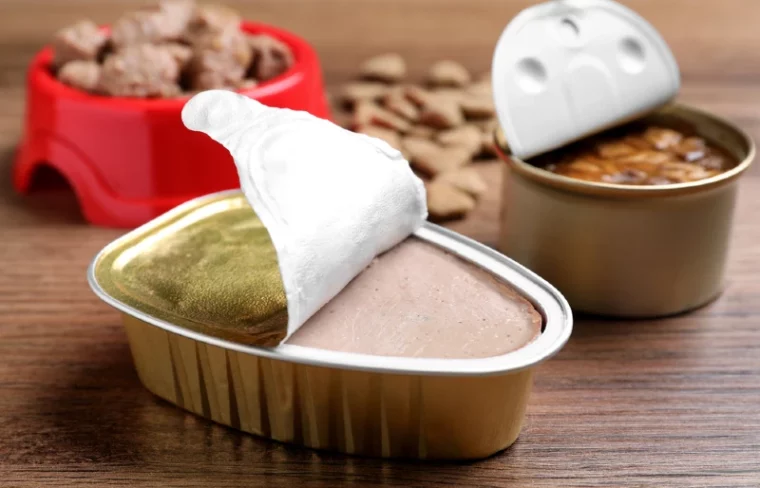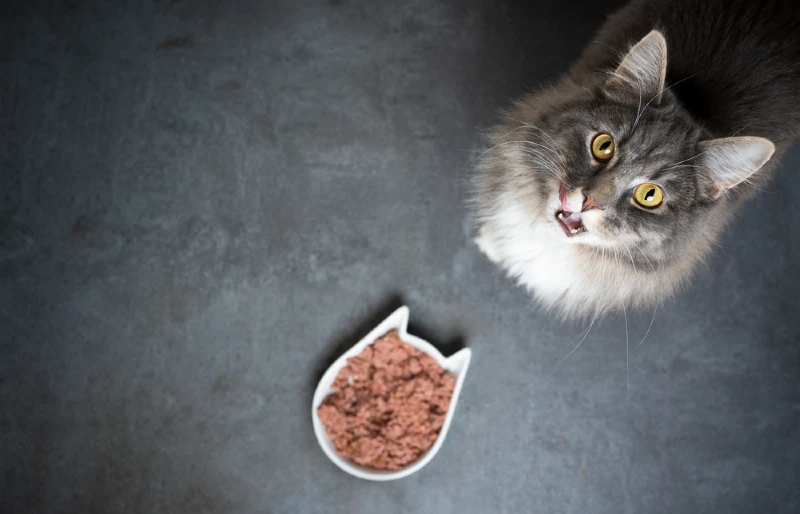
Click to Skip Ahead
It would be convenient for our wallets if the food we feed our cats would last forever without spoiling, but unfortunately, this isn’t the case. Your cat’s food, just like your own, will go bad after some time. Feeding your kitty spoiled food can cause food poisoning, so it’s good to familiarize yourself with the signs of food that has gone off.
Read on to learn how to tell if your cat’s food has gone bad and how to properly store the food to expand its shelf life.
Tips For Storing Dry Cat Food
How to Tell If Dry Cat Food Has Gone Bad
One of the best things about feeding your cat dry food is that it has a long shelf life. Though your bag can last for months, it can still go bad and may make your cat sick if you feed the rancid food to them.
1. Visual Inspection
One of the easiest ways to determine if your cat’s dry food has gone bad is to evaluate its appearance. Do not feed your pet if it looks different than usual. It could be slightly off-colored or even growing mold.
2. Smell Changes
Another easy way to tell if the food is bad is by smelling it. If you’ve been feeding your cat the same kibble for some time, you know what it is supposed to smell like. Any deviations from this scent could mean that it’s gone off.

3. Expiration or Best By Dates
We also recommend looking at the expiration or best-by date on the packaging to determine if it’s passed its time. If it’s getting close to its expiration date and is also not smelling or looking as it usually does, get rid of it.
4. Texture Changes
If the food feels different in your hands than usual, it could be spoiled. For example, spoiled dry food can feel harder than usual or even soft and mushy. If it’s hard, it may have lost what little moisture dry food contains, becoming stale in the process. If it’s mushy, it may be contaminated with mold or bacteria.
5. Package Integrity
If the package is perforated or torn and you are not sure when this happened, discard it entirely. Damaged packages will allow air and bacteria to reach the dry food, exposing it to oxidation and contamination. Food in a damaged package will most likely go off well before its expiry date.

Tips For Storing Canned Cat Food
How to Tell If Wet Cat Food Has Gone Bad
Wet food can spoil much faster than dry food as its high water content makes its shelf life much shorter. Canned food can go bad for many of the same reasons human food can spoil. For example, exposure to air can cause bacteria growth, and high moisture levels in the air can breed mold.
There are several ways to tell if your cat’s wet food has gone bad.
1. Cat’s Interest Level
Most cats will devour wet food without giving it a second thought. If your kitty typically eats its wet food with great enthusiasm but is now suddenly turning its nose up at it, that could be a pretty good indicator that something is up. But, of course, this can also indicate a health issue with your cat, so it’s not always the best determinant of food freshness.
2. Smell Changes
There’s a good chance the food has gone off if it smells different from usual or straight up smells rotten or sour. This may be more difficult to determine with wet food than dry food, as canned food typically already has a strong scent.

3. Visual Inspection
You can also determine a food’s freshness by evaluating its color and appearance. For example, is the food typically dark brown, but now it’s noticeably lighter? Or are there streaks of other colors in it that aren’t usually present? This could indicate contamination, so it’s best to get rid of it just in case.
4. Sound of Can Opening
Every cat can hear the sound of a can opening from a mile away. If you pull the tab on your cat’s food and it doesn’t make the tell-tale sound, it’s a good indicator that the seal was broken, and bacteria could be growing inside.
5. Can Condition
If the can is swollen, rusted, or dented, discard it entirely. Bulging or swollen cans may result from contamination from the gas that bacteria produce. A dented can could result from a broken seal, potentially exposing your cat’s food to bacteria like Clostridial, which could cause botulism.

Final Thoughts
Now that you know how to tell if your cat’s dry or wet food has gone bad and how to store both wet and dry food properly, you shouldn’t have to worry much about feeding your beloved kitty spoiled food. It’s a good idea to keep your eyes, nose, and ears open when serving your pet meals so you can pick up on any subtle hint that the food has gone off.
See also:
Featured Image Credit: New Africa, Shutterstock







